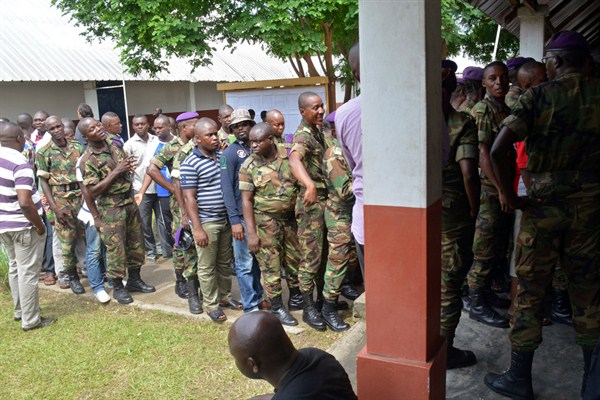In 2015 and 2016, Denis Sassou Nguesso—who has served as president of the Republic of Congo for two stints totaling more than 30 years—orchestrated a constitutional referendum and election that allowed him to stay in office. However, his latest term has been marred by more than a year of instability in the southeastern Pool region and elsewhere. The International Federation for Human Rights released a report this month denouncing “massive human rights violations” in the region, including arbitrary arrests and torture. In an email interview, Brett Carter, a Central Africa expert at the University of Southern California, explains what’s fueling the crisis and the extent to which Sassou Nguesso remains in control of the country.
WPR: What has been driving violence in the Pool region, and how do the facts on the ground compare to the government narrative?
Brett Carter: The violence in the Pool region began in early April 2016 after Sassou Nguesso claimed victory in an election that was obviously fraudulent—an event made possible by a constitutional referendum the previous year that modified presidential term and age limits. On April 4, government buildings and other structures were attacked in the capital, Brazzaville. This was an attempt by frustrated citizens to launch a revolution. The government, however, blamed the Ntsiloulou rebel group, which had been disbanded in 2006, perhaps even earlier, and had nothing to with the violence. Nevertheless, the following day, the government launched its military campaign in the Pool region, where the group—also known as the Ninja rebel group—is based. The campaign was intended to signal to citizens that the government would employ overwhelming force to put down a popular uprising.

